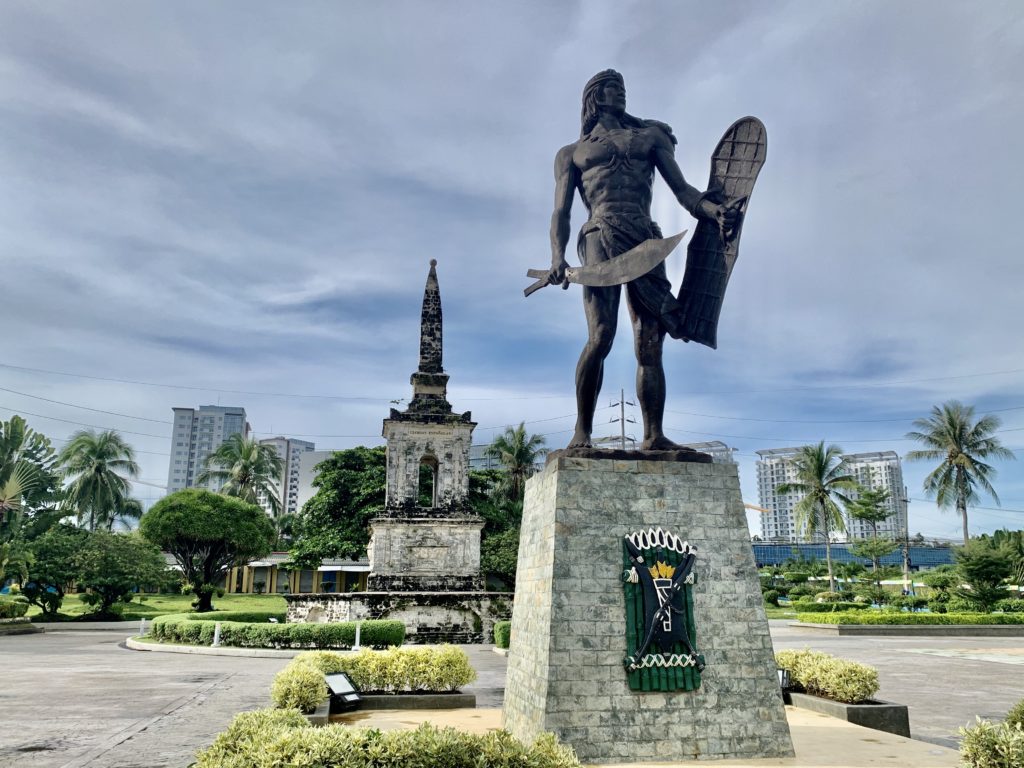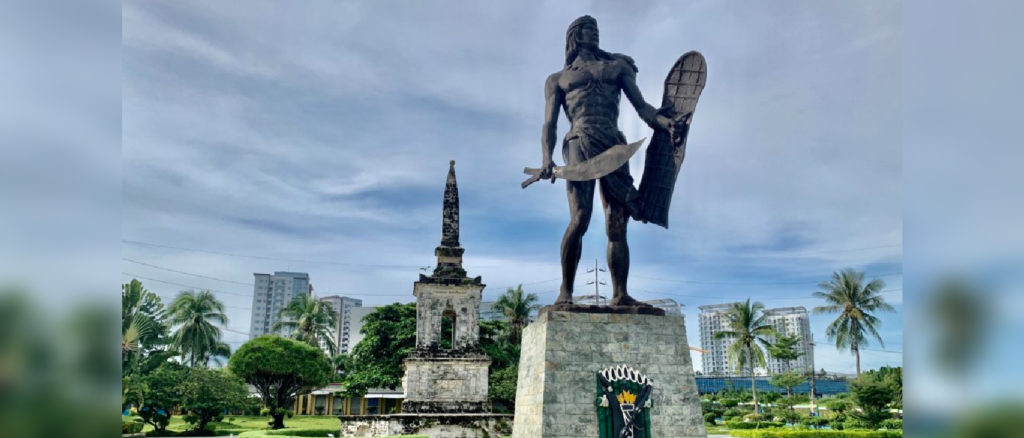CEBU CITY, Philippines — This March, Cebu will be marking a year since strict lockdowns and community quarantines were implemented to contain the spread of the coronavirus disease 2019 (COVID-19).
A year after the island, and the entire country for that matter, reported the first confirmed cases of the infection, things have gone differently. Vaccines are being administered to healthcare workers, and travel restrictions were eased.
While hospitality and tourism industries are welcoming these twin developments, more work needs to be done for this year if it meant ensuring a gradual yet constant journey towards their full recovery.

This is the Mactan Shrine in Lapu-Lapu City, which is also dubbed as Cebu’s ‘historic resort city’. CDN Digital photo | Brian J. Ochoa.
“We can slowly start reopening our economy, in baby steps,” said Alfred Reyes, the new president of Hotel Resort and Restaurant Association of Cebu (HRRAC), the largest organization composed of players from the hospitality industry here in Cebu with over 100 members.
Reyes, currently the Vice President for Operations and General Manager of bai Hotel, a property owned and operated by international luxury-hotel chain WorldHotels in Mandaue City, was inducted as the HRRAC president last February.
His new role came at a time when upticks for a full-swing resumption of travel and tourism remained precarious.
“These are huge shoes to fill in,” said Reyes who also said the uncertainties he faced during the 2003 SARS pandemic as a hotelier paled in comparison to present challenges.
The entire Cebu island was placed under modified general community quarantine (MGCQ), the most-relaxed form of community quarantine, since September 2020. Under MGCQ, tourism-related activities are allowed to resume.
But still, occupancy levels in Cebu remained low, said Reyes.
“Hotels and resorts are not making any money. No one is making money,” he stated.
On average, the HRRAC official said they registered occupancy rates around 5 to 10 percent in weekdays. These figures could go as high as around 30 to 50 percent in weekends.
“You have seven days in a week, (but) the two days running a 50 percent occupancy rate is not enough to cover the losses (incurred) on Monday to Thursdays,” Reyes explained.
The National Economic and Development Authority in Central Visayas (NEDA-7) previously estimated that the region, where Cebu belonged, lost the opportunity to earn around US$700 million from foreign arrivals during the first semester of 2020.
Separate data from the Mactan Cebu International Airport Authority (MCIAA) showed that only 806,000 passengers bound for and coming from international destinations were accommodated in 2020, an estimated 82 percent drop compared to the numbers made in 2019.
Bearing the brunt of this economic crisis is no other than the tourism and hospitality industries, NEDA noted.
HRRAC President, and bai Hotel Vice President of Operations and General Manager Alfred Reyes | Photo courtesy of bai Hotel
If hotels, resorts, restaurants, and other leisure-oriented establishments in Cebu continue to record low occupancy rates for 2021, Reyes said they feared it could result in imposing more drastic, cost-cutting measures such as cutting back jobs.
“Some of our members are basically operating with a minimal number of rooms. If this (low-occupancy rates) will still go on in the next six months, definitely a lot of employees will be cut from work, do forced leaves, more retrenchment, and implement skeletal force,” he said.
Travel restrictions relaxed, vaccine rollout
Approximately six months later, however, things started to look brighter as the national government allowed local governments to eliminate several pre-requisites for travelers trying to access their territories, and healthcare workers are now being vaccinated against COVID-19.
“This COVID-19 has really hurt our industry. It’s going to be one year since we were placed under ECQ (enhanced community quarantine). It was mid-March in Manila and during the last weeks of March in 2020 for Cebu. And it’s been a year and we finally received the vaccines. The hope we used (to aim for) is now a reality,” said Reyes.
The Cebu Provincial government has dropped real-time polymerase chain reaction (RT-PCR) test results as part of requirements for travelers bound for the province. This means that individuals doing both essential and non-essential trips will only have to present medical certificates, and pass symptoms checking at seaports and airports.
Authorized Persons Outside Residence (APORs), on the other hand, will also need to show documentation detailing their itineraries here.
The Capitol’s orders came ahead of the recommendations of the Inter-Agency Task Force for the Management of Emerging Infectious Diseases (IATF), giving local officials full authority on how to regulate the influx of inbound travelers.
Tourism and hospitality players welcomed the IATF’s recent resolution as well as the province’s decision to do away with RT-PCR test results.
But even so, Reyes said ‘more work needs to be done’, particularly in boosting domestic travelers’ confidence’ which, according to their observation, remained low at around 20 percent.
This prompted HRRAC, together with other members of the private sector and the Department of Tourism (DOT), to launch a month-long sale this March 16 to entice tourists.
“Currently, we are in the right direction. We are slowly reopening our borders, and hotels, resorts, and tour operators in the province will be launching an online sale this March 16 called I Love Cebu together with the private sector and DOT,” Reyes said.
“It’s a baby step in bringing back the confidence of the consumers by offering them good prices and rates. The sale will be up to one month, with purchases’ validity for one year. It’s something we can definitely start on, and we will wait and see how the sale would look like,” he added.
In the meantime, the hotelier urged his fellow executives and workers of the tourism and hospitality industries to extend their patience and to continue to implement and observe minimum health standards.
“Business is not as good as pre-pandemic. For those who would like to go out and dine, protocols should be really in place. It’s always going to be safety first. We also expect travelers and guests to be aware of their own responsibility,” said Reyes.
“And have a little patience. I’m sure we can open again our economy. We have already started reopening our borders, and the government already supported in terms of easing restrictions,” he said.
“Hotels are doing their best so local travels can start commencing, and we are launching in accordance to the 500 years of (arrival of Christianity, Battle of Mactan, and circumnavigation), this would really help boost our economy and our industry,” he added.
/dbs
Related Stories
Lapu-Lapu to remove all travel restrictions; tourism players welcome move
Mandaue’s tourism office flooded with questions on how to visit city
Cebu Province to launch Holy Week tour packages


